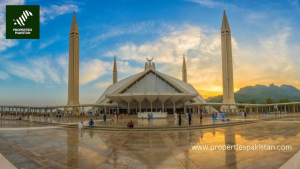Islamabad: In a recent consultative webinar organized by the Sustainable Development Policy Institute (SDPI), experts and policymakers emphasized the urgent need for Pakistan’s construction sector to align with climate goals. They called for tax incentives for sustainable practices, strict regulations for non-compliant industries, and a dedicated Environmental Protection Agency (EPA) unit to enforce eco-friendly building standards.
Urgent Need for Green Construction Policies
Senator Sherry Rehman, Chairperson of the Senate’s Standing Committee on Climate Change, highlighted the importance of integrating the construction sector into national climate policies. She proposed tax incentives for environmentally friendly projects and increased taxation on industries failing to meet sustainability benchmarks.
“The informal sector is already practicing circularity by recycling materials, but we need the formal sector to be part of national policies,” she stated. Rehman also raised concerns about Pakistan’s growing solid waste crisis, particularly its impact on the Indus River, now one of the most polluted rivers in the world.
Environmental Impact & Resource Depletion in Pakistan’s Construction Sector
The construction industry contributes to 30-40% of global greenhouse gas emissions, and in Pakistan, 25-30% of construction waste ends up in landfills, according to Akbar Mahmood Zaidi, Resident Engineer at ACES 18. Unchecked resource extraction is depleting natural reserves, particularly in environmentally sensitive areas like Margalla Hills National Park.
Dr. Abid Qaiyum Suleri, Executive Director of SDPI, stressed that unsustainable construction practices worsen air pollution, smog, and climate migration. He called for green policies that provide a taxation roadmap, encouraging sustainability across the real estate and development sector.
Sustainable Solutions for Pakistan’s Housing & Real Estate Sector
With a housing deficit of 10 million units in Pakistan, the demand for real estate development remains high. Experts suggested the following solutions:
- Utilizing low-carbon materials for affordable housing projects.
- Incentivizing green building certifications for real estate developers.
- Developing a used-materials database to encourage recycling and reuse in construction.
- Encouraging private housing societies to integrate sustainable practices.
Successful past initiatives like Khuda Ki Basti, Naya Pakistan Housing Programme, and the Sindh Peoples Housing for Flood Affectees (SPHF) were cited as models for sustainable urban development.
Government’s Role in Promoting Sustainable Real Estate & Construction
Bilal Anwar, CEO of the National Disaster Risk Management Fund, stressed that while the construction sector is a major employment generator, it remains largely absent from climate change discussions. He urged the government to:
- Introduce strict circular economy regulations to reduce construction waste.
- Implement higher taxation on high-carbon industries while offering incentives for green projects.
- Enforce zero-waste strategies and sustainable building codes.
- Encourage private-sector participation in eco-friendly real estate ventures.
The Future of Sustainable Construction in Pakistan
The webinar concluded with a strong consensus on the need for immediate government action. By regulating construction practices, introducing sustainability incentives, and enforcing strict environmental laws, Pakistan can drive long-term economic growth while mitigating climate change risks.
The real estate and construction sector in Pakistan is evolving—and investors who adopt sustainable practices now will benefit in the future. Stay updated with PropertiesPakistan.com for more insights into eco-friendly real estate opportunities and sustainable housing developments.
Would you like to invest in green real estate? Let us know in the comments below!




